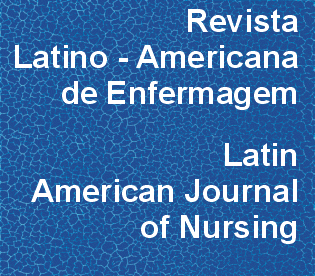Labor flexibilization and deregulation for nursing workers in Brazil: the profae case
DOI:
https://doi.org/10.1590/S0104-11692008000200006Keywords:
labor relations, nursing, supervisory, public health, international organizationsAbstract
This study analyzed the flexibilization process of labor relations in the PROFAE Professionalization Project of Nursing Workers (Projeto de Profissionalização dos Trabalhadores da Área de Enfermagem - PROFAE) in Brazil. This qualitative study used dialectical and historical materialism as the theoretical-methodological framework. Data were collected through directed interviews with open-ended questions, and answers were submitted to discourse analysis. The obtained results evidence the flexibilization and deregulation process of labor relations in the health area in Brazil, characterized by the following elements: payment by production; fragmented labor division; criteria for variable wage payment; qualified and versatile professionals; perceived professional freedom; reduced governability and power to make decisions; multiple jobs; activity planning as a substitute for planning models, and the massive systematic operationalization of actions.Downloads
Download data is not yet available.
Downloads
Published
2008-04-01
Issue
Section
Original Articles
License
RLAE’s authorship concept is based on the substantial contribution by each of the individuals listed as authors, mainly in terms of conceiving and planning the research project, collecting or analyzing and interpreting data, writing and critical review. Indication of authors’ names under the article title is limited to six. If more, authors are listed on the online submission form under Acknowledgements. The possibility of including more than six authors will only be examined on multicenter studies, considering the explanations presented by the authors.Including names of authors whose contribution does not fit into the above criteria cannot be justified. Those names can be included in the Acknowledgements section.
Authors are fully responsible for the concepts disseminated in their manuscripts, which do not necessarily reflect the editors’ and editorial board’s opinion.
How to Cite
Labor flexibilization and deregulation for nursing workers in Brazil: the profae case. (2008). Revista Latino-Americana De Enfermagem, 16(2), 205-211. https://doi.org/10.1590/S0104-11692008000200006



